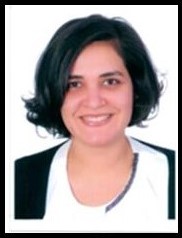- Fatma Amer

My deep and ever growing interest in the fields of arts and culture, especially film, has helped me set new career goals, which I believe can be completely achieved and added to by ample academic knowledge. I was first introduced to film archiving in 2013 when I joined Kurrasat Al Cimatheque, a film criticism and programming workshop organised by Cimatheque – Alternative Film Centre in Cairo. As part of the work, I was required to thoroughly research their film archive collection. Before long, I began working with Cimatheque as a film archivist and writer, assisting them in building and cataloging their rich library and archival collection.
As part of the Cimatheque team, I organized workshops and talks focusing on archives in order to study and question archival material. In an attempt to re-examine the function of existing archives, I curated film programmes and organised discussions towards learning about cinema and preserving film heritage, all in the endeavour of supporting local alternative film culture. As part of my work, I was also selected to attend the Berlin Film Festival in February 2015 as a young film critic in order to curate a programme from the Forum and Forum Expanded sections, which is due to premiere in Cimatheque in Fall 2016.
I have since continued to pursue my interests in film history and archiving by working with several media and arts related initiatives in Cairo, alongside Cimatheque, such as the French Cultural Institute. My work–be it as a freelancer, or full-time employee–all focused primarily on archiving, researching, facilitating the documentation and editing of new film works, general art programming, and critical writing.
The work I have pursued thus far is in many ways the natural evolution of a life-long passion for cinema and desire to see the art—in all its forms and complicated, interlocking histories—remain accessible to the general public. There is no true culture of film archives in Egypt, despite possessing one of the longest and richest cinematic traditions in the world. The few archives that do exist are not always centralized: most archives are small, unfocused collections in the hands of personal collectors deeply unwilling to share these vital aspects of cinema history with others.
Thus, the training I would receive at the University of Amsterdam is perfectly timed with my career goals, and the multitude of questions currently posed by the film archives in Egypt.
The resources available in Amsterdam, which allow students to work fully with archives, museums, libraries, labs, and nearby arts organizations will inevitably enrich my work
goals, and provide the know-how necessary to help build nascent film archives in my home country.
Besides wanting to be able to start critical work groups in film criticism, as well as initiate and work through dormant archives that have yet to be analysed formally through any analytical aesthetic discussion, my career goals also include:
- Learning how to develop an easily accessible film archive in Egypt, wherein visual and cultural memory are heavily controlled by different forces.
- Creating intuitive cataloguing and indexing systems based on international guidelines (including film reels, DVDs, videotapes, press releases, production stills, and a myriad number of three-dimensional items), to ensure accessibility of the collection.
- Broaden my understanding of film archives, and learn curatorial theories that would help inform future programming initiatives.
- Developing and conceiving policies and procedures in an administrative capacity to ensure the proper running of arts and cultural initiatives.
- Sharing my knowledge with others in the local community on the basics of film preservation and restoration methods, both in conceptual and practical terms through hands-on training.
- Fully understand researching methodology and how to incorporate them into archival work, and future analytical writing based on the archive.
In the absence of local training, the Master’s programme, Heritage Studies: Preservation and Presentation of the Moving Image is incredibly relevant, with its deft combination of conceptual, theoretical ideas, hands-on training, and expertise. In addition, the network provided by the venerable institutions leading the process will undoubtedly benefit the work I hope to pursue in Egypt in the near feature. I truly believe that the capacity building and networking possibilities offered by the program will undoubtedly prove invaluable to and complementary to my current skill set.
Most endeavors in Egypt possessing an interest in archiving and preservation of moving images do not receive state support. On the contrary, they face constant obstacles in running their activities. Given the systemic corruption, level of negligence, and incompetency rampant in state institutions—especially when dealing with the preservation of its national patrimony—it is incredibly important for me to dedicate my time and energy to young, independent institutions that share my values.
Despite receiving Universal Studios Preservation Scholarship from The Association of Moving Image Archivists (AMIA) which covered thirty percent of the university fees, my operational budget is quite limited, especially in regards to living standards in the West. Unfortunately, I cannot adequately cover the cost of my attendance for the program in Europe, nor would I be able to cover the costs through the monthly salary I currently receive in Egyptian currency. Despite these challenges, I sincerely hope that the financial side does not hinder the furthering my archival studies, which in the future will be beneficial to countless cinema lovers in the country.
Cimateque website and its social networks pages: